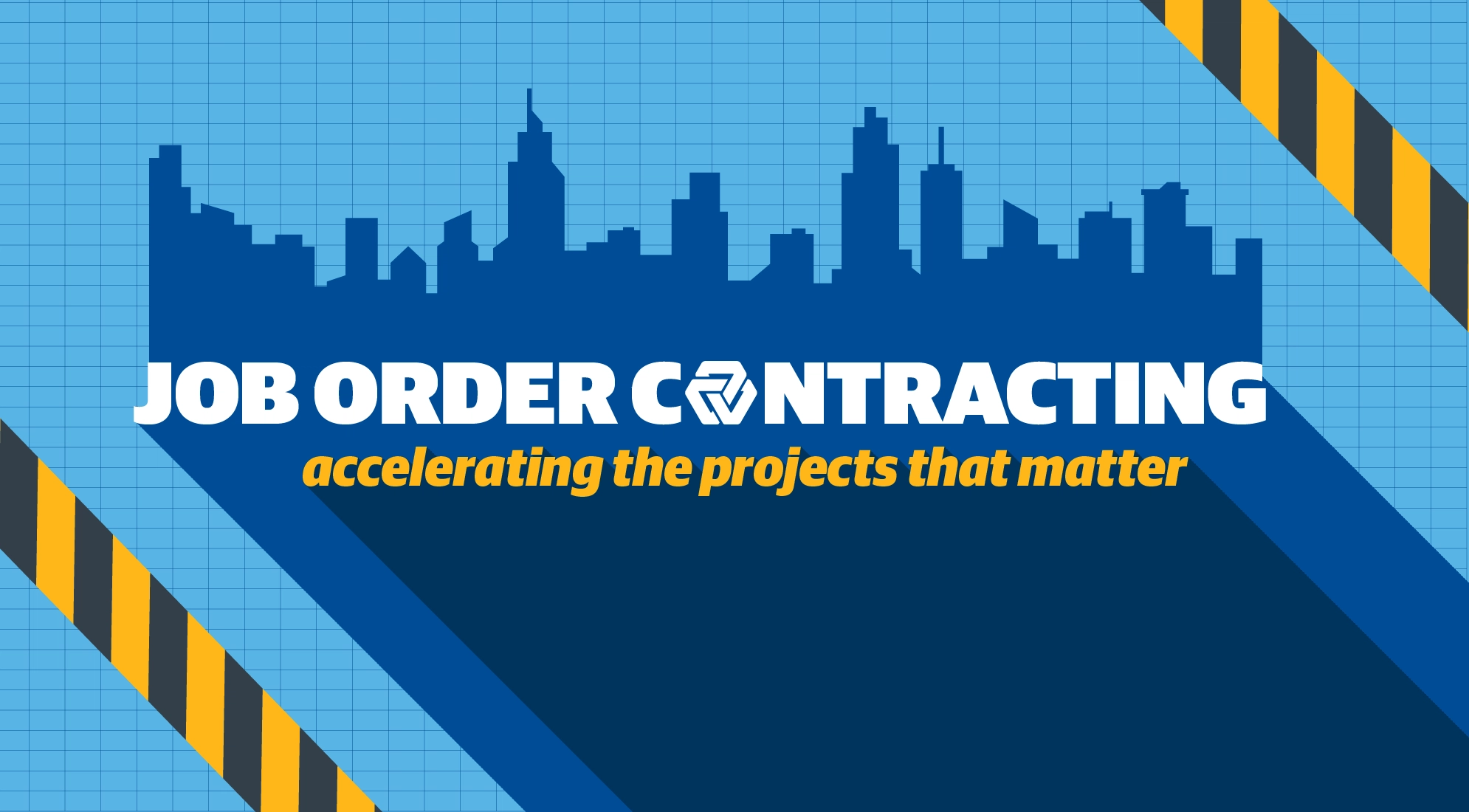Of all the construction project delivery methods, Job Order Contracting (JOC) is perhaps the most under-researched. Unlike other types of project delivery, there has not been a concerted effort to study its use and benefits. Until recently.
In 2021, Gordian and NIGP: The Institute for Public Procurement partnered to close the industry’s JOC knowledge gap.
A pair of Ph.D. researchers surveyed 260 procurement professionals working in various organizations, including state government agencies, county governments, healthcare organizations, educational institutions and others. The aim of this research was to better understand construction procurement trends and solicitation activities, and to shed light on the differences between project delivery methods, specifically the differences between JOC and traditional project delivery methods like Design-Bid-Build (DBB), Design-Build (DB) and Construction Manager at Risk (CMAR).
The researchers sought to answer to key questions:
- Are solicitation, transaction and coordination efforts different when implementing Job Order Contracting compared to other project delivery methods?
- How do contractor relationships and contract governance differ when using Job Order Contracting compared to other project delivery methods?
Here is a summary of their findings.
JOC Requires Less Time Than Traditional Project Delivery Methods
Traditional construction procurement cycles, particularly in the public sector, are hampered by complicated procedures. As a result, project delivery takes months to complete. More than half of survey respondents indicated that the process lasts more than 12 weeks. That’s an awfully long time, especially for routine projects.
Job Order Contracting reduces this time significantly. Once a Job Order Contract is awarded, a project owner can ask awarded contractors to perform a series of projects. There is no need to prepare, copy, advertise and distribute bid packages for each project. These time-consuming upfront activities are completed one time only and are not repeated for each project. This shortens the procurement process from a few months to a few weeks.
91% of survey respondents told researchers that the JOC project delivery method takes fewer than 12 weeks – that’s less than traditional project delivery. Further, nearly 70% of respondents reported that the JOC process takes fewer than nine weeks. That means, compared to other project delivery methods, procurement professionals are starting projects an average of 25% faster with JOC.
JOC Requires Fewer People Than Traditional Project Delivery Methods
Between the Great Recession and budget constraints across North America, procurement teams are shrinking. Facilities needs, on the other hand, continue to grow. Thus, procurement leaders need to find ways to maximize the output of their teams.
According to the research, JOC does just that. Close to 60% of respondents said four or fewer people were involved in their JOC process. Compare that to traditional project delivery, where nearly half of respondents reported that five or more people participate.
In a world where deployment of people must be as strategic as deployment of capital, JOC offers procurement teams the latitude to get the most out of their dwindling staffs.
JOC Transaction Costs Are Comparable To Traditional Project Delivery Methods
Since JOC is not widely used or understood, there is a misconception that implementing a JOC program requires more time and more money than traditional project delivery. This perception is false.
Research found that the transaction costs associated with implementing a JOC contract are comparable to the transaction costs of more traditional construction contracts. For our purposes, a transaction cost refers to any material and capital investments, and/or any human efforts it takes to stand up a project delivery method.
These costs are only comparable in the beginning. Over time, JOC transaction costs are lower than traditional project delivery methods. The more often owners procure construction with JOC, the more efficient they become at using it. This efficiency can further achieve the economies of scale, driving down transaction costs.
JOC Creates Trust Between Owners and Contractors
Successful construction projects require a collaborative environment where owners and contractors work together toward mutual interests. That’s why procurement teams are on the lookout for strategies focused on relationship governance to build trust and increase collaboration.
Researchers concluded that, compared to other project delivery methods, JOC can guarantee buyers more effective governance of contractor relationships. These improved relationships result in better communication, enhanced trust and fewer opportunistic behaviors. All this adds up to a better project outcome.
But it’s not just better relationships that generate better outcomes. While a Job Order Contract is in place for multiple projects, contractors must still satisfy an owner’s standards for quality and timely construction work. The owner is under no obligation to give the contractor more projects but may do so if they are satisfied with the contractor’s work and their working relationship. The potential for a steady stream of work motivates contractors to meet and exceed an owner’s expectations. Exceeding an owner’s expectations provides communities with better facilities.
When JOC is used to procure construction services everyone wins.
Research Conclusions
The study concludes that, despite its relatively low diffusion, JOC performs equal to or better than other project delivery methods. Specifically, the researchers found that:
- JOC projects are procured in less time than other project delivery methods.
- JOC requires fewer people than traditional procurement.
- The initial transaction costs of JOC are initially comparable to more popular project delivery methods. Over time, JOC’s transaction costs are lower.
- Owner and contractor relationships are enhanced by JOC and result in better project outcomes.
These benefits are why researchers suggest public organizations consider JOC when executing routine repairs, renovations or simpler construction projects.










